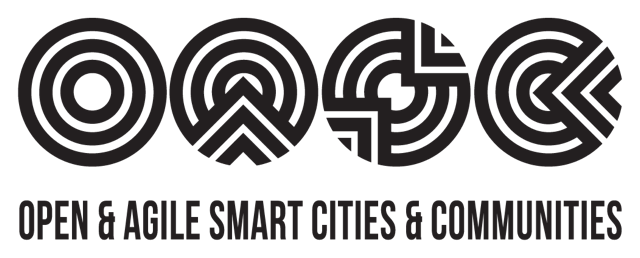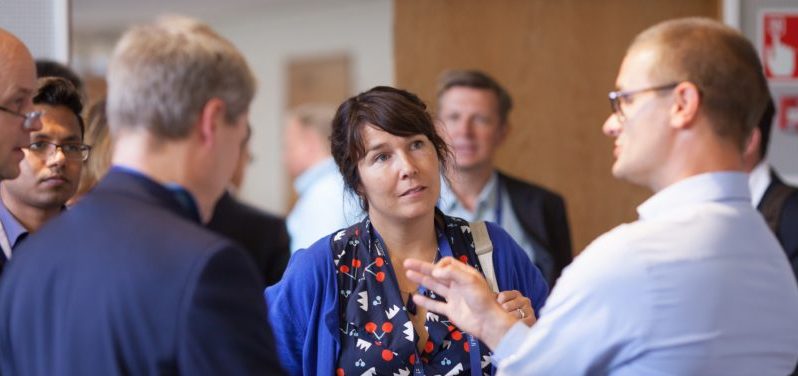The Smart City Day focused on topical issues related to the Internet of Things (IoT) and smart cities. The full-day workshop was organised in the framework of the MyData 2018 conference that took place from 29-31 August in Helsinki, Finland. It was co-organised by the City of Helsinki, Forum Virium Helsinki and the Open & Agile Smart Cities with support of EIT Digital.
Here are the themes and topics of the day in a nutshell.
How to organise city data and privacy
The day started with a panel on city data and privacy. How should we organise and enable mydata, data privacy and data-enabled services in smart cities? This calls for new kinds of citizen activities and rises questions on how to mitigate the possible risks related to this development.
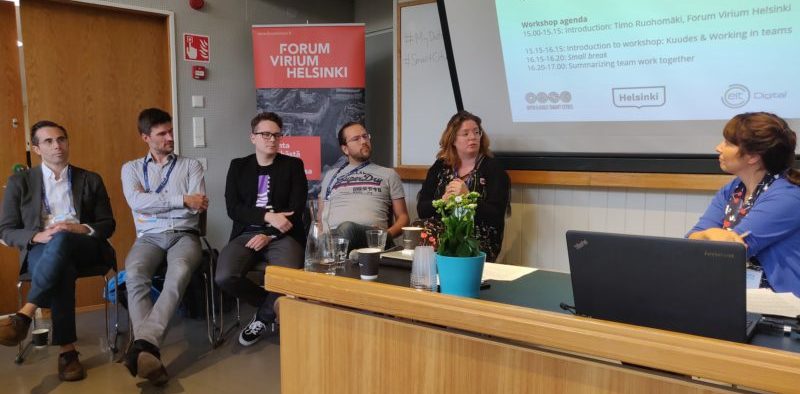
The panelists from left to right: Hugo Gonçalves, Samuel Rinnetmäki, Henri Tanskanen, Joonas Pekkanen and Ivonne Jansen-Dings
Joonas Pekkanen, the City of Helsinki’s ICT Development Director for the Culture and Leisure Sector confirmed the city’s commitment to Open Data while integrating legacy data as much as possible in the solution. He emphasised the importance of Open Data and MyData in the development of products and services that consumers and citizens really want to use.
Ivonne Jansen-Dings, the Head of Programme in Smart Citizens Lab, stressed the importance of giving citizens the tools and necessary information to understand the problematics and opportunities behind the MyData concept.
Hugo Gonçalves, the Project Development Manager for Forum Virium Helsinki presented the Select for Cities project and the Pre-Commercial Procurement tool used in the endeavour. The project has advanced to Phase 3 (validation) and is going to evaluate five different solutions gone through the challenge to develop an open, standardised, service-oriented and user-centric platform.
Samuel Rinnetmäki, a Lead Consultant for QPR showcased the real-life applications a data-savvy person can build. From public transportation APIs to air quality and energy data, Samuel presented the opportunities and the stepping stones (such as lack of interoperability) of the different portals and called for a more innovative organisational culture for the public sector.
Henri Tanskanen, an Associate in HH Partners, talked about the risk of companies “sugarcoating” their responsibilities in terms of the GDPR legislature and cleared some of the most common GDPR misconceptions. Henri proposed the idea of a browser-based universal consent management system that would solve some of the current problems regarding, for example, the increasing amount of cookie pop-ups that don’t really warrant the potential breach in user privacy.
Minimal Interoperability Mechanisms’ benefits to Smart Cities
In the second part of the workshop, OASC General Manager Davor Meersman gave an overview of how the so-called OASC Minimal Interoperability Mechanisms – a baseline set of standards and principles for smart cities – can contribute to innovation and procurement based on standards.
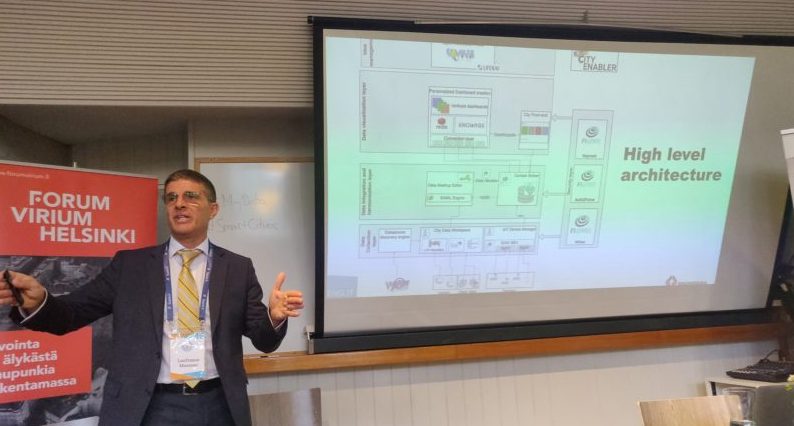
As an example for standards-based innovations, Lanfranco Marasso and Giovanni Aiello of Engineering presented the Cedus City Enabler. The City Enabler is an open source data mining technology can help cities to detect and visualise data and mydata from public and private sources within the city – based on OASC principles.
Could MyData encourage to sustainable choices?
mySMARTLife organised the third and last part of the Smart City Day. It included a workshop that tasked the participants to think on how could MyData enable new services and encourage behavioural changes towards sustainable choices?
Timo Ruohomäki, Project Manager from Forum Virium Helsinki, talked about how Smart City data could be used to create increased value for citizens. Services based on city data (like carbon footprint evaluators) can help create daily habits; something that has to be taken into consideration in all processes involving data extraction and utilisation.
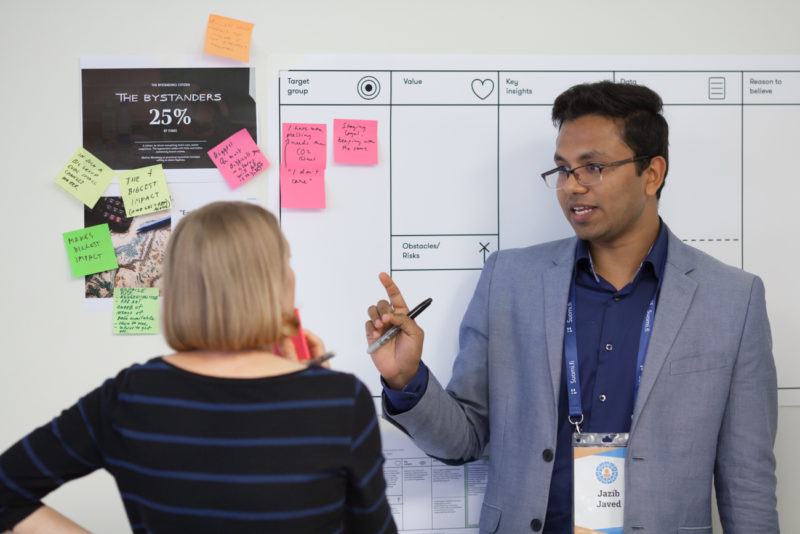
The event ended with a workshop hosted by Kuudes. Based on their study on Finnish consumer profiles, teams were tasked to dive in their respective profiles and think about ways to engage that customer segment in a more environmentally sustainable living and explain why that particular customer was important to involve in the deployment of any product or service.
—
This article was originally posted by Forum Virium Helsinki.
Additional material
